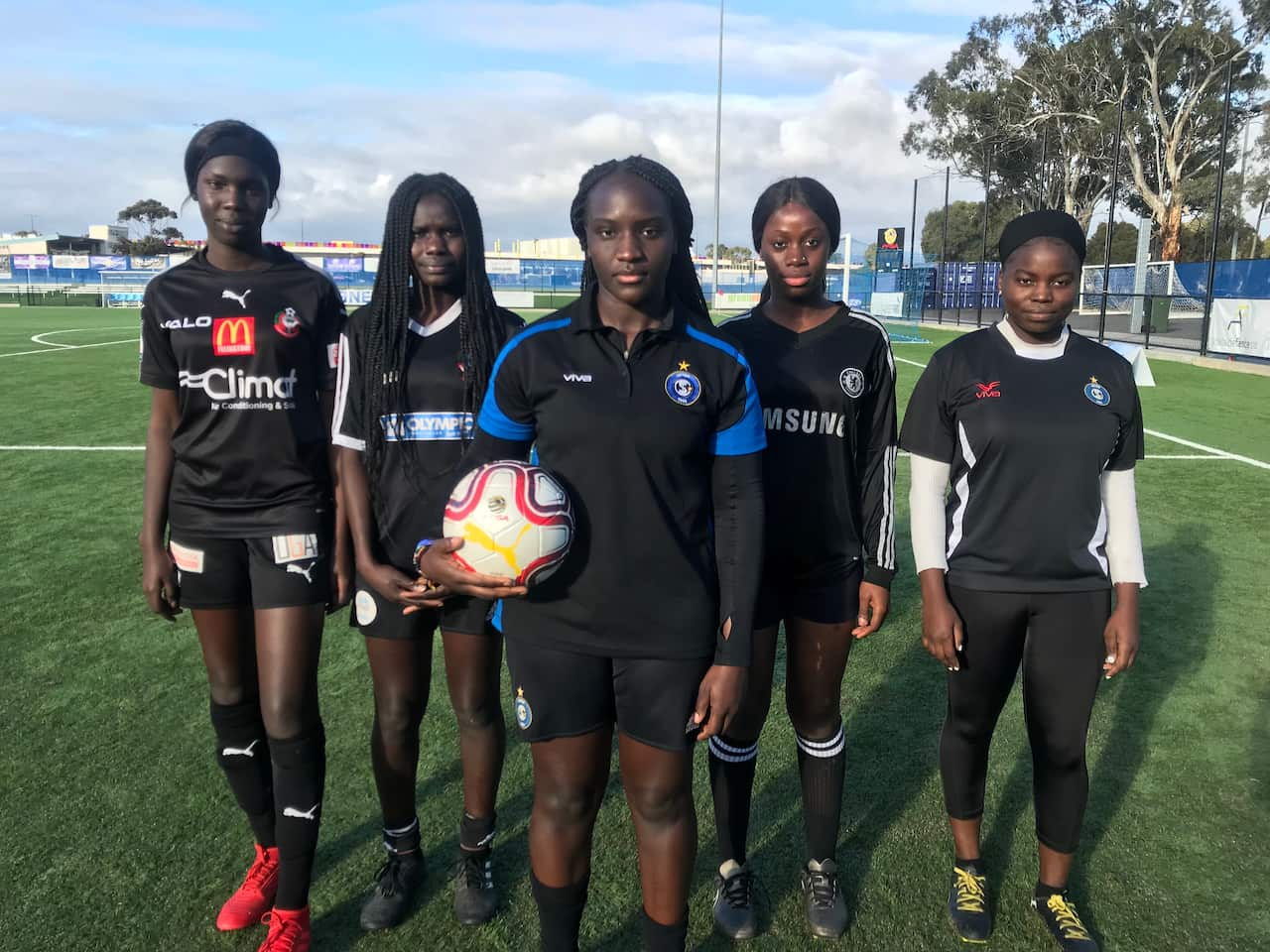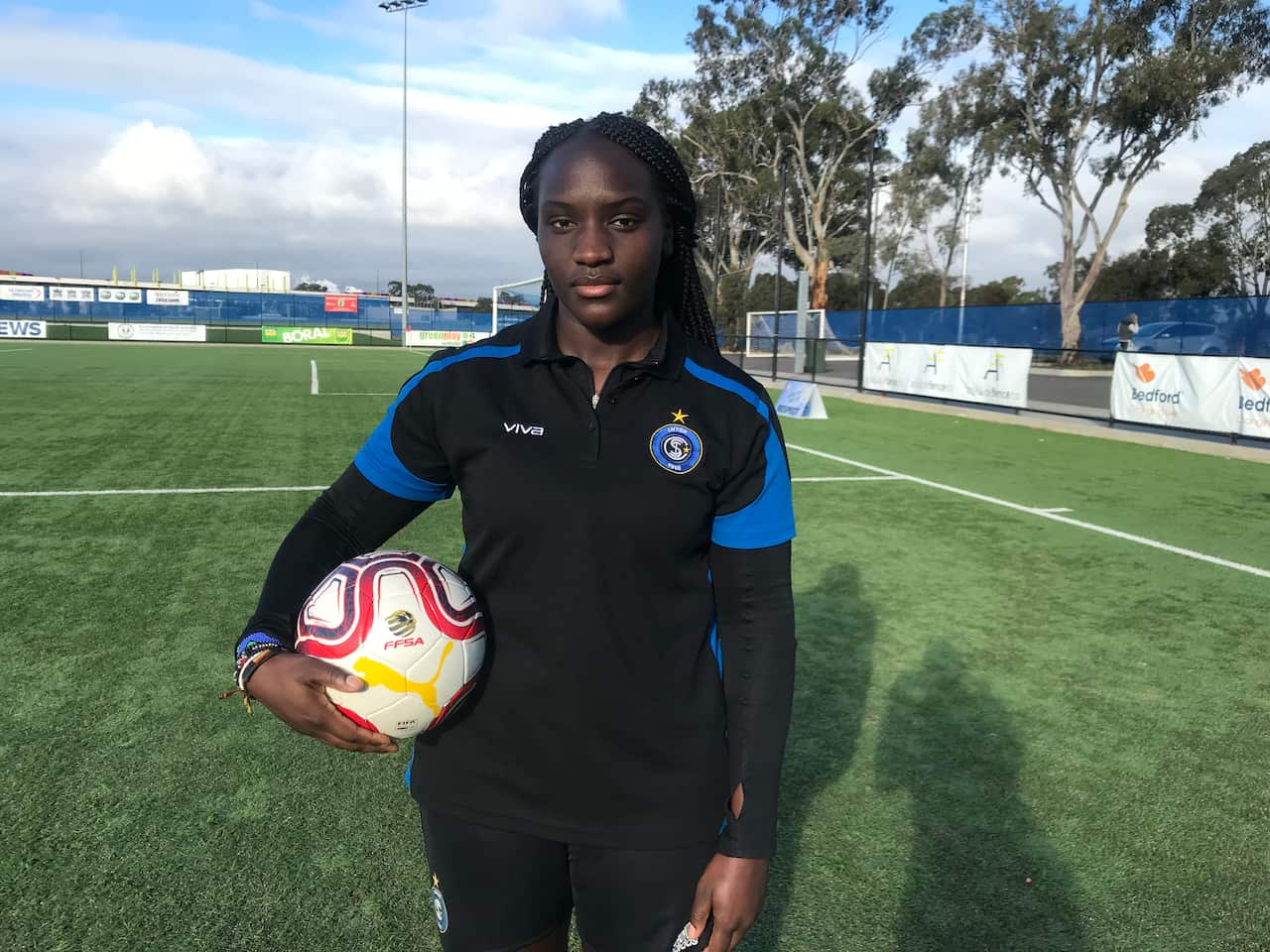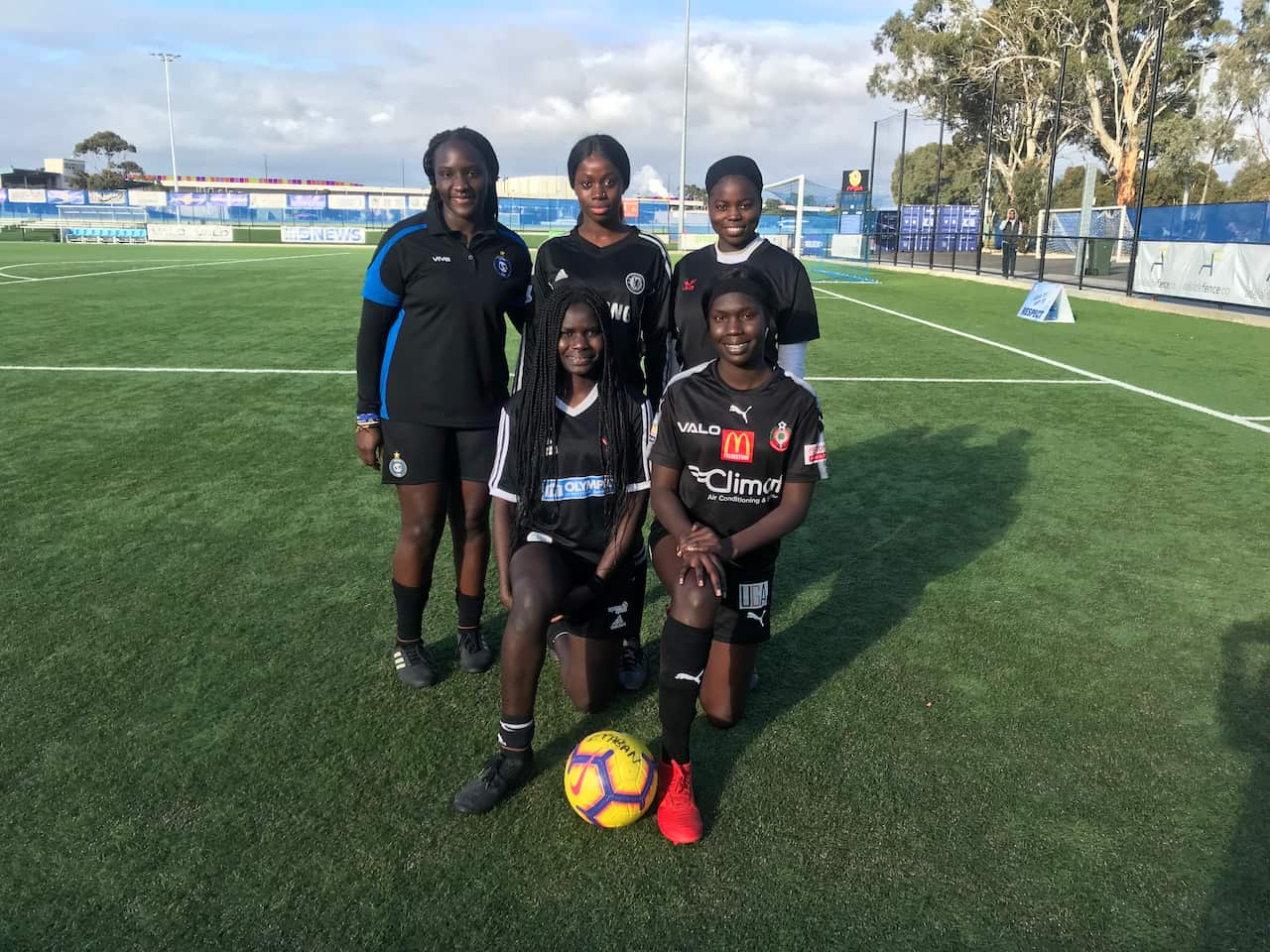Every year for the last five years, the African Nations Cup has been a highlight of Adelaide’s sporting calendar.
Drawing players from the diaspora of more than 30 African countries, it has been a launching pad for top football talent, says coordinator Arsene Iribuka.
“Some of our players have actually gone on to play at the international level, some now play in the A-League,” said Mr Iribuka, who is from the African Communities Council of South Australia.
Until now though, there’s been a lack of women and girls participating.

Mr Iribuka says it's partly because of traditional cultural views on women participating in sport.
“A lot of families out there still see that sport is not a place for women, especially football," he said.
“And for the culture that we come from, that is definitely a challenge in terms of progressing the women’s game.”
But as more young women join the sport, that mindset is starting to change.

Elizabeth Taban, an 18-year-old from Adelaide’s northern suburbs, is among those lobbying for greater participation.
She’s been playing the sport since 2013.
“I do really like the athletic side of it and the winning side of it,” she said. “But I [also] really enjoy the culture side of football.”
Ms Taban is from South Sudan and says many of her teammates have faced similar barriers, including having to juggle training with responsibilities at home.
“As a woman, because I’m in the house, I’m expected to do cleaning, to do cooking as well. So sometimes I’d have to make sure I quickly do my homework, quickly cook and then go to training,” she said.
As a woman, because I’m in the house, I’m expected to do cleaning, to do cooking as well. - Elizabeth Taban, Footballer
Ms Taban is hoping to play in a women’s only tournament when the African Nations Cup returns in October.
She says it has taken hard work on and off the pitch to be allowed to participate.
“The biggest challenge is probably the support,” she said.
“We don’t get enough support from the guys’ teams, and we don’t get enough support from the community, so it’s hard.”

A women’s exhibition game was introduced two years ago. That turned into four games last year.
“We are making progress,” said Mr Iribuka.
“One of the reasons is because we recognise that the women’s game is something that we’ve neglected for a long time.
He says the potential among young female players is impressive.
“They’re excellent,” he said. “It’s one of those things, like a duck to water. They play really good football. It’s just really sad that they haven’t had the opportunity to be able to showcase their talent.”
They play really good football. It’s just really sad that they haven’t had the opportunity to be able to showcase their talent. - Arsene Iribuka, African Nations Cup coordinator
Wendy Carter, general manager of football operations at the Football Federation of South Australia, says the fiercely contested African Nations Cup has been a gateway to mainstream sport for many young players of diverse African backgrounds.
“One of the things that we can do through football is actually show them how to become involved in local clubs because a lot have not played structured football before.”
She says having women and girls involved could lead to greater participation at more elite levels, like the men before them.
“It actually gives the exposure to the girls … they are becoming a very strong part of the football community.”
For Ms Taban, the chance to play at competition level is emblematic of a wider battle.
"I’m not so much trying to change the fact that we have the responsibilities, but just to make sure that the community’s a little bit more open to girls following their dreams, and following their passions.”

